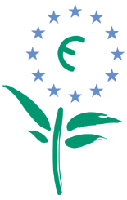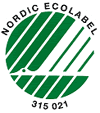TECHNODOCS Limited is committed to minimising the impact of its activities on the environment.
The key points of its strategy to achieve this are:
Machine Recycling
Our second generation user sales, TECHNODOCS-R, gives our clients the benefit of lower cost machinery that has been originally supplied by TECHNODOCS, which is refurbished in-house to high standards which is backed by our Full Service & Maintenance Agreement and Total Quality Guarantee.
Redundant office equipment is becoming a headache for all organisations. The WEEE directive which has recently been implemented restricts the disposal of used electrical items, unless all parts and components are either recycled or disposed of environmentally.
Our links with the industries Trade and Export Companies provide a solution to this potentially expensive problem with an on-site collection service.
All machines are collected, cleaned, tested and packaged by our highly trained and experienced staff. Machines can be tracked to provide complete transparency to the customer.
Waste Electrical and Electronic Equipment Directive
What is WEEE?
The Waste Electrical and Electronic Equipment Directive (WEEE Directive)is the European Community directive 2002/96/EC on waste electrical and electronic equipment which, together with the RoHS Directive 2002/95/EC, became European Law in February 2003, setting collection, recycling and recovery targets for all types of electrical goods.
The directive imposes the responsibility for the disposal of waste electrical and electronic equipment (WEEE) on the manufacturers of such equipment. Manufacturers are then required to establish an infrastructure for collecting WEEE. Also, we are compelled to use the collected waste in an ecologicalfriendly manner, either by ecological disposal or by reuse/refurbishment of the collected WEEE.
The directive took effect in the UK from 1st July 2007. From this date onwards, the manufacturers of all photocopiers, printers, multi-functional printers, computers, etc, are required to arrange the environmentally friendly disposal of all such equipment made by them which reaches “end of life” – i.e. is no longer required by the owner and would otherwise be discarded as waste
What are the supplier’s responsibilities?
The key to determining the liability on the manufacturer is the existence – or not – of the image of a wheelie-bin, crossed out, on the product concerned. Manufacturers were required so to label their products from August 2005, and this label determines that the manufacturer is required to remove such “end of life” products (so called “New WEEE” if such a label exists) if the owner so requests. Should the owner wish to continue using the product or to sell it privately to another person or organisation, it has clearly not reached the end of its life.
Within the “photocopier” (MFP) industry, which operates within a largely saturated and replacement market, most sales of our products are ones where one device replaces another. Often, the manufacturers are different, if the customer chooses to change the brand of the product used. This has resulted in an arrangement whereby the various manufacturers have agreed to cooperate in the removal of WEEE and to arrange for the appropriate recycling of the device concerned. If the product was supplied by a dealer, rather than by the manufacturer’s own sales and service force, the liability remains with the manufacturer, unless the respective dealer has agreed with his supplying manufacturer to take on the liability himself for end of life products replaced by a product he has sold. The manufacturer then has passed the liability to that dealer, who needs to operate in cooperation with a licensed recycler.
What if there is no crossed out wheelie-bin? (”Old WEEE”)
The obligations on the manufacturer are similar, in as much as, if the customer wishes the manufacturer to remove the product, the manufacturer is required to do so, if he has supplied a similar product to replace it – but only if this is the case. This is the limit of the obligation on the Producer in the case of “Old WEEE”
Who is the owner?
It is important to be clear who the owner is. It is often the case that such products were acquired on a lease, in which case the title to the product remains at all times with the leasing or finance company, and never resides with the user. It is therefore clear that the decision as to whether the device has reached “end of life” is one to be made by the leasing company, not the user/customer.
What is the impact on the purchaser of a replacement/new MFP?
Little. If the purchaser is the owner of the previous product, simply to decide whether the product is to be retained, or to be removed. If to be removed, who is the owner? Only the owner can decide if end of life has been reached, and the product therefore to be recycled. However, each user/owner of a machine he no longer requires is responsible for removing any sensitive information that may reside in the machine’s memories before the machine is removed.
Our partner manufacturer have entered into arrangements with appropriately licensed recycling companies to facilitate the optimised retrieval of recyclable content from, and environmental friendly disposal of, the materials and components of our products which reach end of life, and also of the many competitor products. Customers can be assured that not only do we fully adhere to the requirements of the Directive, but also seek to exceed its requirements in any way possible that further protects the environment.
Eco Labels
According to the Energy Saving Trust (EST), the average household could save £250 a year by being more energy efficient – the equivalent to saving 1.5 tonnes of C02. Reduced power consumption in consumer electronics is just one way that Sharp can help consumers to reduce their greenhouse gas emissions.
A series of national and international ‘eco-labels’ can be awarded to particular UK products and brands to help the consumer in their buying decision. Eco-labels, awarded by independent bodies, confirm that a product meets strict environmental performance criteria and has very low impact on the environment.
A range of our partners products have been awarded eco-labels for energy saving and/or advanced environmental performance.

Euro Flower
The Euro Flower is awarded by the EU CommissionSharp was the first consumer electronics manufacturer to be awarded the Euro Flower for LCD TVs. The logo is recognised all over Europe to certify environmentally-friendly and energy-saving features and covers a wide range of product groups. To be awarded this label, our LCD TV models have met the following criteria:
• Power consumption on standby below 1 W
• Low electricity consumption when in use
• Recommendations for correct environmentally-conscious usage
• Designed for higher durability and use of materials that are to recycling
• Availability of electronic replacement parts for at least seven years after the end of production
For further information about the Euro-flower, please visit:
http://ec.europa.eu/environment/ecolabel/

ESR
The Energy Saving Recommended (ESR) scheme is run by the Energy Saving Trust (EST) in the UK for integrated digital TVs (IDTVs) and a host of other household electronics, that meet specific criteria.
The ESR accreditation aims to endorse the top 20% of the market identified in terms of energy efficiency. Sharp IDTVs displaying the distinctive blue logo are the most efficient in this category, achieving less than or equal to 1W power consumption in standby mode and less than or equal to 250W in the on-mode.
For further information on the Energy Savings Trust, please visit:

Energy Star
The EU Commission has signed an agreement with the Environment Protection Agency of America to use the label. The label is indicative of the energy efficiency of the equipment and is recognised worldwide.
The majority of Sharp’s document solution equipment meets the requirements of this accreditation.
For further information on Energy Star, please visit:

Nordic Eco-label
Nordic Swan is the official eco-label introduced by the Nordic Council of Ministers. The logo demonstrates that a product is a good environmental choice. The green symbol is awarded to around 60 different product groups (including Sharp document solutions) if these products fulfil certain criteria when assessed in independent laboratories and controlled visits.
